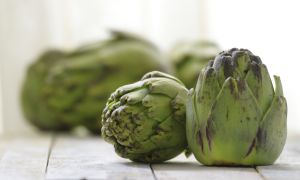Advertisement
In the simplest sense, phytochemicals are any plant chemical (the prefix phyto derives from the Greek word for plant). To nutritionists, phytochemicals are plant compounds that are not already classified as vitamins or minerals. Several thousand have been identified, and certainly many more await discovery. What makes this area of nutrition research so exciting is that not only does the list keep growing, but researchers are also continually learning more about how important these compounds are to human health.
Known phytochemicals have a broad range of protective benefits, from reducing inflammation and speeding healing to preventing infection and fighting cancer. Phytochemicals are not essential to humans -- i.e., not required by the body to sustain life -- but they are essential to plants such as fruits and vegetables. They are plants’ self-protection program, helping shield young buds and sprouts from predators, pollution, the elements and more. When we eat fruits and vegetables, they pass along many of these protective benefits to us. Many phytochemicals are antioxidants. Lycopene, quercetin and betacarotene are some of the better-known antioxidant phytochemicals.
Other phytochemical subcategories include plant enzymes (such as pineapple’s bromelain); phytoestrogens (in soy), which mimic human hormones; and glucosinolates (in broccoli, cabbage and cauliflower), which activate the body’s detoxifying enzymes. As yet, there are no official dietary requirements for phytochemicals -- no established upper limit for lycopene, no recommended intake for quercetin. Scientists are steadily addressing this void, and as they isolate, identify and study phytochemicals, they hope to gather sufficient data to make dietary recommendations.
Known phytochemicals have a broad range of protective benefits, from reducing inflammation and speeding healing to preventing infection and fighting cancer. Phytochemicals are not essential to humans -- i.e., not required by the body to sustain life -- but they are essential to plants such as fruits and vegetables. They are plants’ self-protection program, helping shield young buds and sprouts from predators, pollution, the elements and more. When we eat fruits and vegetables, they pass along many of these protective benefits to us. Many phytochemicals are antioxidants. Lycopene, quercetin and betacarotene are some of the better-known antioxidant phytochemicals.
Other phytochemical subcategories include plant enzymes (such as pineapple’s bromelain); phytoestrogens (in soy), which mimic human hormones; and glucosinolates (in broccoli, cabbage and cauliflower), which activate the body’s detoxifying enzymes. As yet, there are no official dietary requirements for phytochemicals -- no established upper limit for lycopene, no recommended intake for quercetin. Scientists are steadily addressing this void, and as they isolate, identify and study phytochemicals, they hope to gather sufficient data to make dietary recommendations.
Continue Learning about Antioxidants
Important: This content reflects information from various individuals and organizations and may offer alternative or opposing points of view. It should not be used for medical advice, diagnosis or treatment. As always, you should consult with your healthcare provider about your specific health needs.




